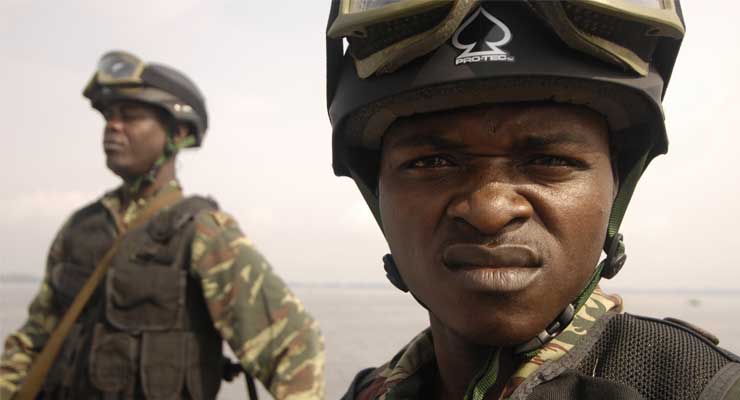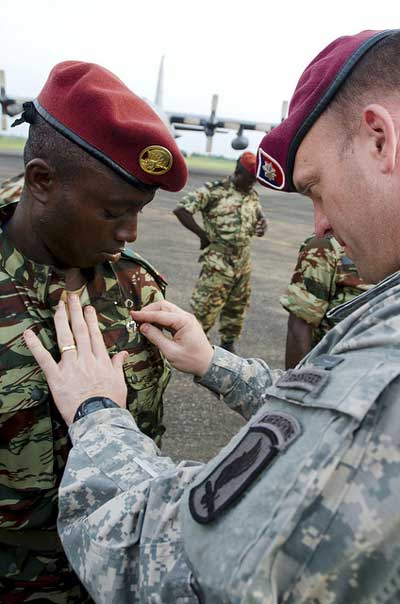This is the last of four articles in a series on Cameroon Anglophone problem:

It is fact that British Southern Cameroons (BSC) and French Cameroon (FC) were the result of the splitting of German Kamerun after the First World War (WWI). However, following the colonial dynamics of the time and especially International Law, French Cameroon and British Cameroons became two distinct colonial territories equal in status as a result of the 1916 Simon-Milner line. As such, neither BSC nor LRC could, can and should ever claim paternalism over the other. It can also not be over-emphasised that on 01 October 1961 it is two independent States that were to come together in a union to be negotiated on equal terms.
These two States had never been together before being split. The plebiscite of 11 February 1961 was not intended to “re-unite” two territories to return/restore them to a previous colonial state but it proposed, unlawfully and dishonestly though, that a will be independent and sovereign State should accede to her independence by the means of “joining” this or that already existing State.
The UN that had embarked on the unconditional decolonisation of the trust territories did so for FC but simply denied to do so for BSC. As a result of the abuse of procedures and laws, both internationally and locally, LRC of 01 January 1960 annexed BSC and has usurped the resources of BSC while at the same time doing everything possible to assimilate her people in the name of national integration.

The UN has watched this situation passively and has tacitly endorsed the violation by LRC and even by herself (the UN) of every single UN Law and Resolution that ascertains self-government for BSC. BSC identified today as Anglophone Cameroon has faced the problem of annexation, marginalisation and assimilation. Successive protests have led to the creation of the SCNC and several other groups calling for Federalism or separation.
These voices could be heard in the 21 November 2016 Coffin Revolution favoured to some extent by the rise of populism in the world but nonetheless absolutely legitimate. The Anglophone problem is clearly not a problem of Ministerial positions or any other form of belly politics.
It is a problem of the erosion of the cultural and national identity of BSC. It therefore has no form of external influence as self-determination has proven to be trans-generational in BSC. LRC’s response to the major demands of the Coffin Revolution has been defiance, insults, intimidation, extra-judicial arrests and killings and the denial of freedom of speech and expression. This is a recipe for radicalisation and the manure for the seed of separation at the detriment of that of Federalism and union.
Hon. Wirba addressed the Anglophone issue in clear and unambiguous terms in his speech at the National Assembly on 02 December 2016. He damned all recent Government measures to address the crisis qualifying them as manoeuvres aimed at reducing West Cameroonians to sub-human state (dogs). He deplored the impunity with which so called “forces of law and order” have operated in West Cameroon. He quoted from the founding fathers of the United States of America that: “when injustice becomes law, resistance becomes a duty.”
The ghost towns are evidence that Anglophones have decided to resist Government’s manipulation and repression through passive resistance which is far more potent than war. Were the Government of LRC to come to reason, it will be laudable she retracts from the path of repression and deceit and address the issues tabled in a swift, formal and brotherly manner.
The Government of LRC must desist from saying that Federalism is a taboo and synonymous to “secession”. It is merely an appeal to return to the stifled pacts of 1961 or face legitimate separation. LRC has acted unwisely in her manoeuvre of manipulating public opinion that Federalism is the same thing as secession.[i] Without meaning to downplay the gravity of the arbitrary arrests and killings as well as the stifling of the freedom of speech and expression, this rhetoric that Federalism is equal to secession sung by Government over all air-waves is probably one of the vilest aspects of LRC’s actions in this debacle.
Whatever the case, Government also has to factor-in the eventuality that the UN might come on board to rectify the mistake of 1961. It is evidenced that all who have tabled this problem to the UN seek only separation. Events in the past 55 years have given them reason to do so. Even so, many have still not understood the silence of the UN in this matter. The UN seems to be demonstrating once more that she does not care about BSC. It seems that French influence within the UN is stronger than the obligation for the UN to protect the right to self-determination of the people of BSC.
In the face of all the brutality, killings and crimes against humanity in BSC, the UN has been quiet. The US has only made a very weak statement on the matter and until now has not lived up to her reputation as the first democracy in the world and the defender and leader of the free-world. The silence of the United Kingdom in the matter is not surprise. The UK had expended BSC to France in 1961 and had forgotten about her. The hypocrisy is rife.
And it seems no one should expect the UN, USA and UK to intervene even if the bloodbath by LRC in BSC becomes an outright genocide. As the people of the BSC engage continue in their peaceful resistance to annexation, it is the hope of most of her citizens that the world will hear their cry and come support their right to self-determination. The case of the BSC is a unique in world history.
[i] Cf. Social Democratic Front (SDF) 28 January 2017 Statement, p.3.
Leave a Reply